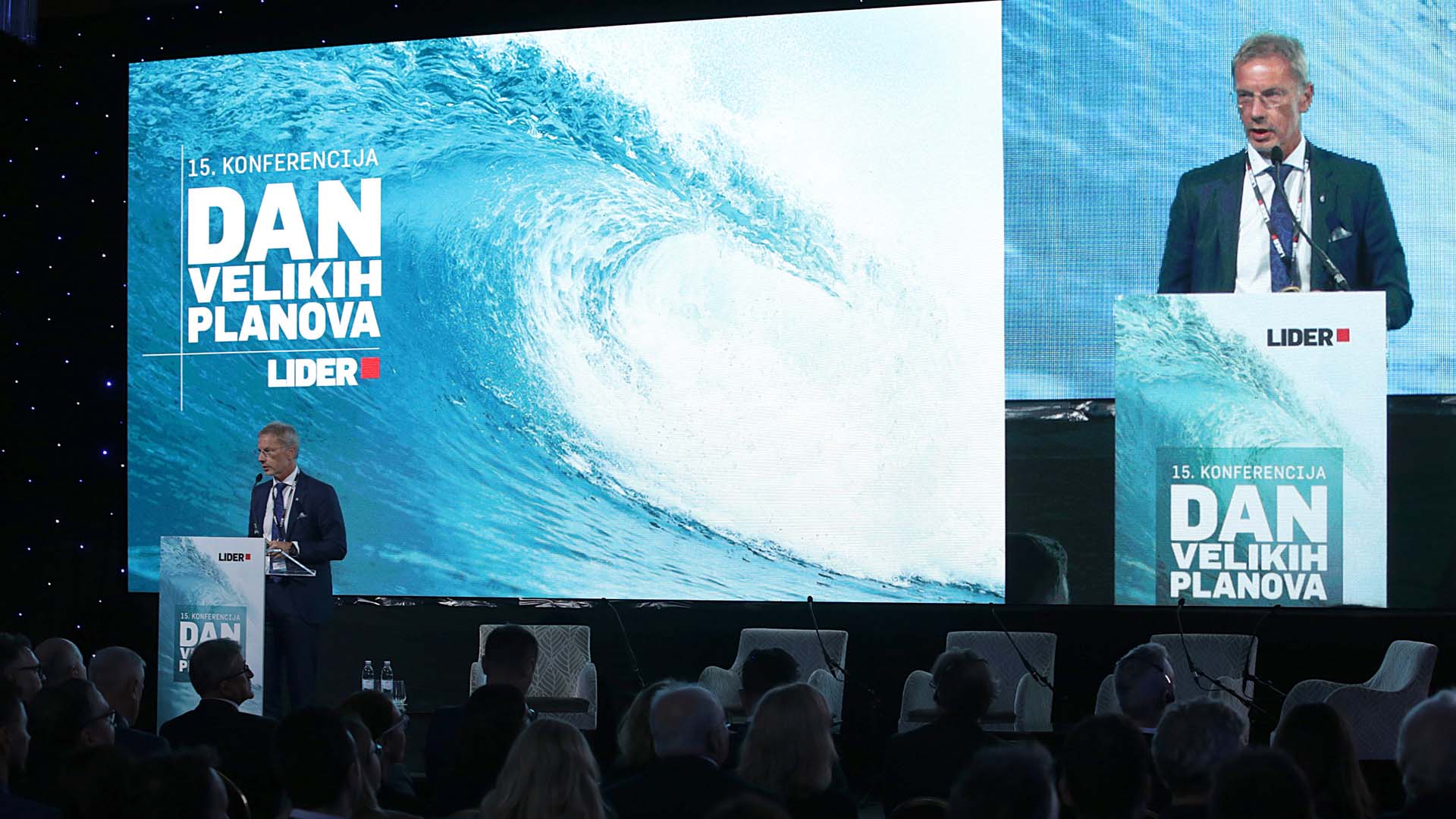
Boris Vujčić, the Governor of the Croatian National Bank, on 15. Lider Conference "Dan velikih planova"<br /> Source: Ratko Mavar/ Lider media d.o.o.
"Interest rate growth in Croatia was weaker than in most euro area countries. If we look at the effect of the European Central Bank benchmark interest rate on new corporate loans, then we see that they are growing faster than housing loans, as expected, i.e. they increased from 1.5% to 4.5%, 5% in a very short period of monetary policy tightening. As for newly-granted housing loans, Croatia and France have the lowest interest rates in the euro area," the CNB Governor Boris Vujčić said today at the 15th conference "Day of Great Plans", organised by the Lider magazine.
On this occasion, the Governor explained that the ECB reacted to the sharp rise in inflation since 2021 with the largest tightening of monetary policy since the introduction of the euro. "The current ECB deposit facility rate (DFR) went up from -0.5% to 4%, 450 basis points in a very short period of time, and this has never happened so quickly in previous interest rate hike cycles. As the Governing Council of the ECB, we state that one of the criteria for our interest rate decisions is the evolution of inflation itself, the projections and the transmission of monetary policy to financing conditions. The pass-through of the key ECB interest rates to euro area interest rates has been swift. Loans granted to enterprises, housing and consumer loans also follow increases in interest rates, which we expect. What is interesting is that we operate with a common monetary policy in 20 different countries that have different characteristics in terms of fiscal and structural policies and the market itself, so the passage of these interest rates is not the same in all member states", the Governor added.
"As monetary policy tightened, lending conditions began to tighten and credit demand in the euro area fell significantly, but in Croatia this decline was much smaller", stressed Boris Vujčić. "Corporate lending is decreasing, while loans to households are growing, and in the rest of the euro area they are declining. An important role in this is played by the APN, but also consumer optimism. The impact of the rise in interest rates on the debtor's position was mitigated by our long-term activities on consumer protection, on the one hand by the greater spread of fixed interest rates, the share of which has increased significantly since we started the campaign to raise consumer awareness of interest rate risk. In the past year alone, some consumers with EURIBOR-linked loans (around 5,500 loans) opted to fix the rate when interest rates started to go up, but most of the migration to fixed rates had occurred in previous years. On the other hand, those who are at a variable rate are mostly tied to the NRR, which grows much slower than EURIBOR, because it is tied to bank financing costs, i.e., for the most part, deposit interest rates. Finally, the smaller part related to EURIBOR is protected by the Consumer Credit Act from the rapid growth of interest rates. Croatian consumers are therefore much more protected against interest rate risk than those in the euro area as a result of the whole range of actions we have taken to protect them," the Governor said.
Speaking of inflation, he noted that it had the same dynamics in the euro area and Croatia. Central and Eastern European countries have higher inflation rates than wealthier Western countries primarily due to a higher share of food in the consumer basket. Croatia has the lowest inflation rate of these countries in the last two years, with the exception of Slovenia. "A significantly higher inflation of the prices of services in Croatia than in the EU is primarily the result of a higher growth in the prices of catering and accommodation services. We expect that the downward trend in inflation will continue and that in 2025 we will reach the level of about 2% that we aim for," the Governor concluded.
